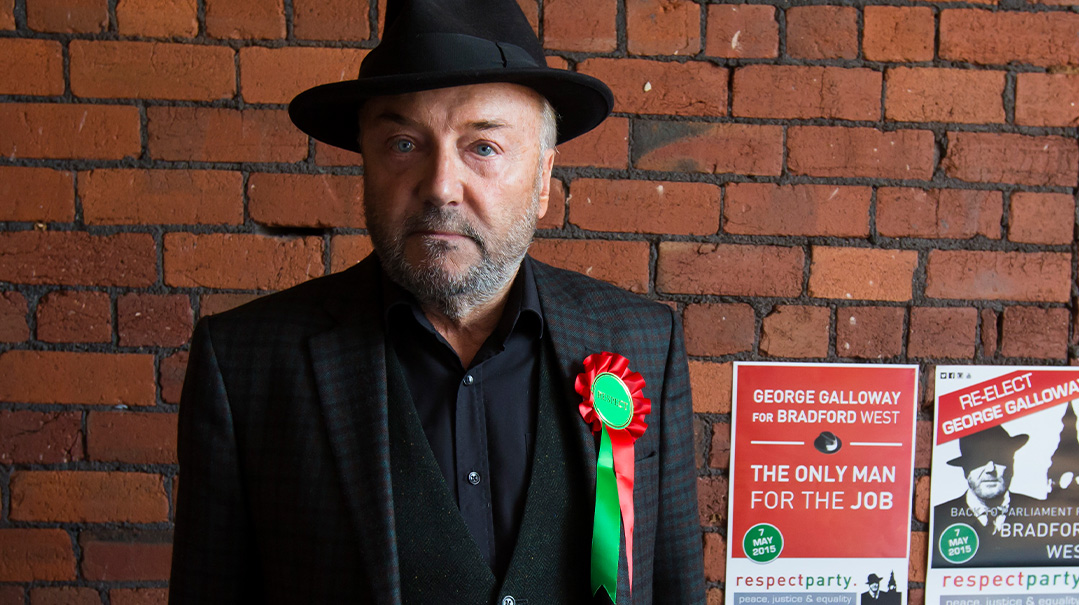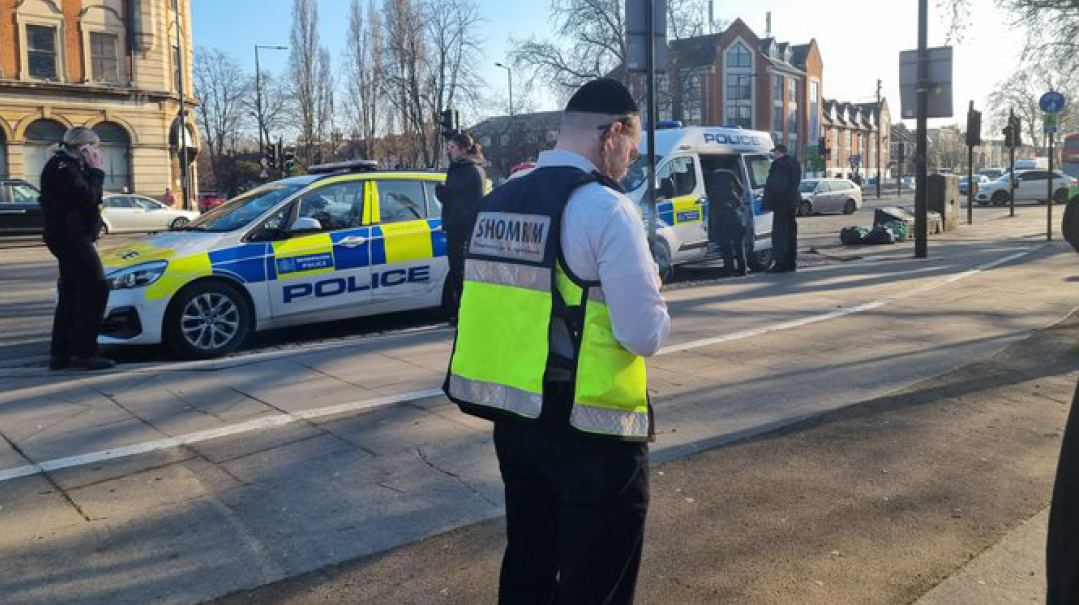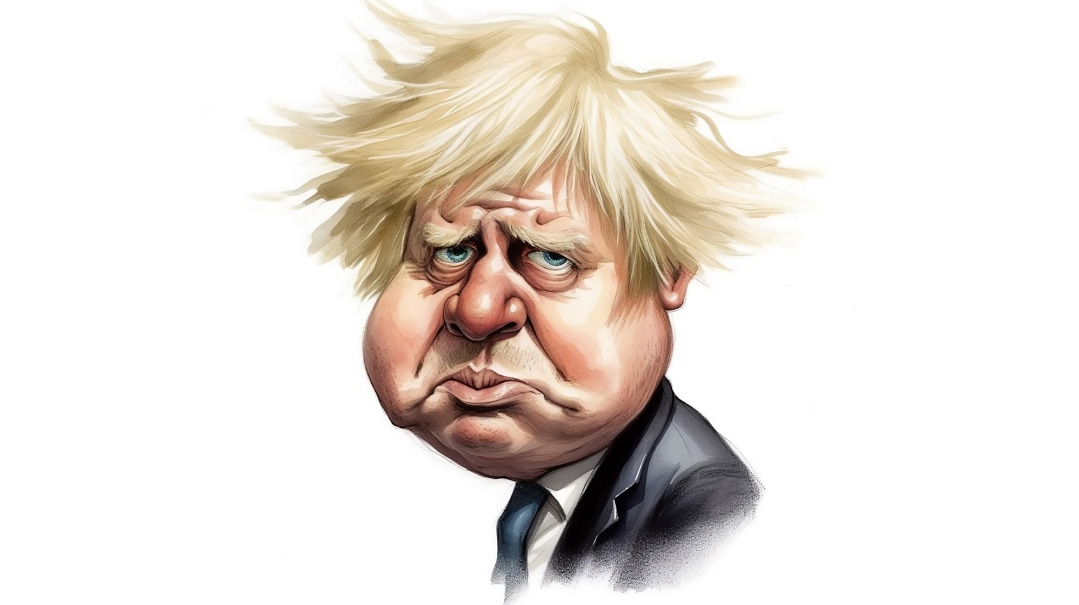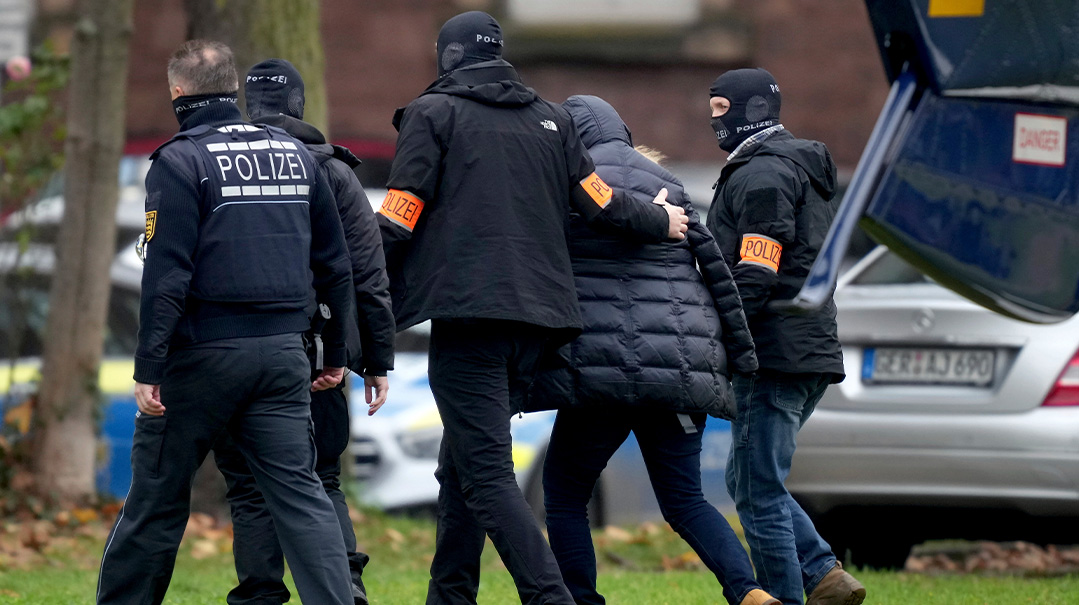Corbyn vs. Johnson, the Reckoning

As fateful elections near, is it countdown to Corbyn?
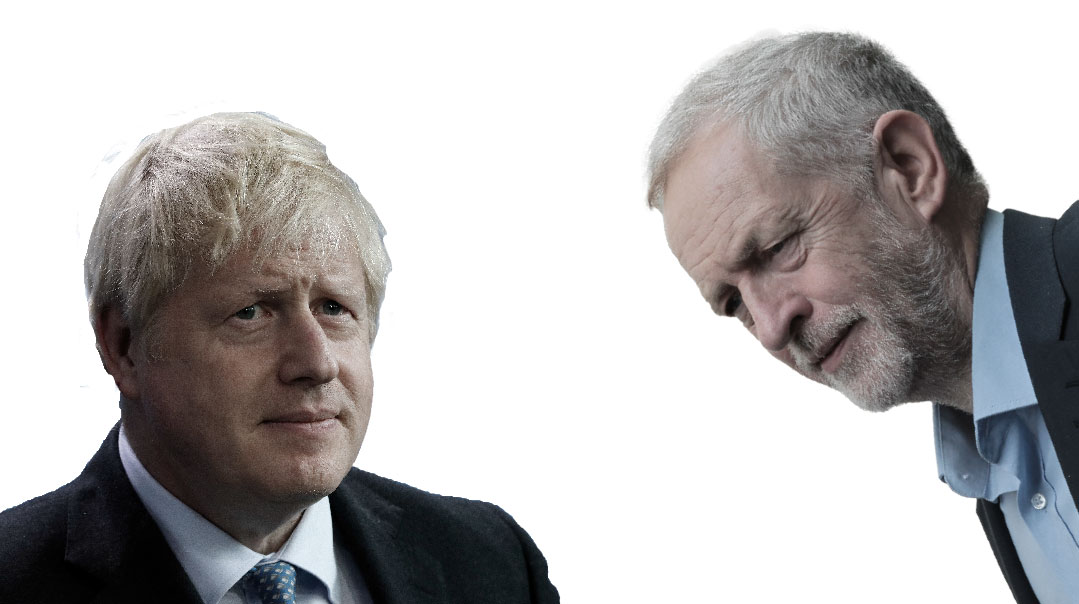
S
o here we go, at last. The make-or-break election that has hung over Britain like a storm cloud since Jeremy Corbyn became Labour Party leader in 2015 is finally upon us.
December 12 will be the most fateful national poll that Britain’s Jewish community can recall. A man who called Hezbollah “friends,” saw nothing wrong with a mural depicting hook-nosed Jewish bankers, and made the Labour Party toxic for its Jewish members, is a step away from 10 Downing Street.
In an unprecedented sign of the Jewish community’s disquiet, a poll by the Jewish Leadership Council, an advocacy group, found that 47% of British Jews would “seriously consider” moving if Labour came to power.
The fear of a Labour government focuses on two things. In common with many British voters, Corbyn’s radical economic policies (see next story) would affect many Jews, with some talking nervously of Labour imposing capital controls to prevent money being taken out of the country. But on specifically Jewish issues, a Corbyn government’s coziness with Israel’s enemies — and likely rupture of relations between the two countries — would inevitably make life very uncomfortable for UK Jews.
Rabbi Avrohom Pinter, head of Stamford Hill’s Yesodey Hatorah school and a longstanding Labour local politician, has experienced the rise of Labour’s grassroots anti-Semitism. “The local Labour party focused heavily on Israel and BDS, and when I spoke up against it, I was accused of being in the pay of the Israeli embassy. I’ve not been to Labour Party meetings for over a year because they became so unpleasant.”
The local MP for Stamford Hill, with its large chareidi community, is Diane Abbott, a key Corbyn lieutenant with an unassailable majority. Speaking last week on national radio, she claimed that many Jews in her constituency don’t see Corbyn as a threat.
But Rabbi Pinter pushed back that “she’s using our community in an opportunistic way, to split the larger Jewish community. Diane Abbott is not an anti-Semite, but she is blind to it in the Labour Party.” In the wake of his comments, Rabbi Pinter says, he’s received hundreds of texts and calls in support of the way that he’s spoken out against using the chareidi community for cover.
The unprecedented way that Britain’s Jewish establishment has taken on Jeremy Corbyn also bodes ill for the day after, if indeed Labour wins. As Jewish former minister Ivan Lewis said in these pages recently, Corbyn would sideline the community’s major organizations and engage with fringe, pro-Palestinian Jewish voices.
But a spokesman declared that the Jewish Leadership Council was undeterred. “We have been consistent over the past two years in demanding that the Labour Party tackle the issue of Jew hate that has infected its ranks. We will be uncompromising in the defence of our community and tackling anti-Jewish racism, wherever it comes from.”
At just over 260,000, or 0.5% of the overall population, Britain’s Jewish community has little electoral clout. Perhaps the only place where Jewish votes matter in this race is in Finchley, northwest London, home to the large religious communities of Hendon and Golders Green.
Famously represented by Margaret Thatcher, affluent Finchley’s current MP is Mike Freer, a pro-Israel Conservative. But he’s being challenged by Luciana Berger, a high-profile Jewish former MP for the Labour Party, now with the Liberal Democrats. With Berger currently leading in the polls for that seat, the danger is that even if a Jewish MP were to win, that would mean one less seat that could be crucial for a Boris Johnson majority.
Overall, Britain’s young and fast-growing religious community is not heading for the exit even if Corbyn wins. “I don’t expect the local chareidi community to pick up and move, but other issues, such as the growing liberal push against religious education and things like milah, could cause that thinking one day,” says Rabbi Pinter.
But the fact that question marks like this can even be raised over the UK’s Jewish future is a sign of how critical this election is.
A Tale of Two Revolutions
Crucial as this election is for the UK Jewish community, it will be fought on issues other than Labour anti-Semitism, and it’s shaping up to be a showdown over two revolutions.
Jeremy Corbyn’s Labour Party is campaigning on a platform as red as the Western world has ever known. Pledging an “irreversible shift in the balance of power and wealth in favor of working people,” the Corbynistas have promised to open up a floodgate of government investment.
Policies include a 32-hour working week, major tax hikes for the rich, free university education, giving workers 10% of companies, nationalization of utility companies, and a £250 billion “Social Transformation Fund” to upgrade schools, hospitals, and government housing throughout the country.
The Conservatives have hit back at these promises as “fantasy economics” that would cost a staggering £1.2 trillion in the next five years. But with Corbyn’s shock 2017 surge — when he came within 22 seats of winning the election — fresh in Tory memories, Boris Johnson knows his party can’t afford another lackluster campaign. And Corbyn’s wobbling over Brexit, Johnson believes, opens up a chance to steal Leave-voting Labour supporters that may never repeat itself.
That’s why the Conservatives’ pitch is equally revolutionary. First and foremost is Brexit. To the 68% of voters ranking Brexit as the leading issue for these elections, according to pollster YouGov, Johnson is vowing to complete Britain’s biggest geopolitical move since World War II: extracting Britain from the European Union.
But noting that after Brexit, health care followed by law and order are uppermost in voters’ minds, Johnson has himself pledged to open the spending taps. With an eye toward making gains in traditional Labour heartlands in former industrial areas in the north of England, 20 new hospitals and 20,000 new police officers are in the cards, as well as lifting spending caps by £20 billion.
In this tale of two revolutions, which one is winning? Johnson’s campaign got off to a scandal-plagued start, with the resignation of a minister and gaffes by leading Brexiteer Jacob Rees-Mogg. Some polls show that his lead over Corbyn has narrowed to 8%, holding at 39%. But a YouGov poll gives him a 12% lead, and Johnson is personally far more trusted as prime minister (43%) than Jeremy Corbyn (20%).
With Britain’s political system in a volatile state, the smaller parties are the ones to watch. According to political science professor Matthew Goodwin of the University of Kent, if 6% of Conservative voters switch to Nigel Farage’s Brexit Party, that’s enough to deny Johnson a majority. But if the amount switching is reduced to 1% to 3%, the Conservatives will have a comfortable majority with 357 out of 650 seats. Farage’s late-breaking announcement that he will stand down his party’s candidates in Tory-held constituencies is a boost for Johnson, but it’s too early to gauge the impact on marginal seats.
Johnson’s pitch to British voters is a binary choice: penury in Corbyn’s socialist la-la land, or boom in a post-EU success story, with Boris sharing the fruits of prosperity with those struggling to make it.
But for Britain’s Jewish community, the stakes in December election go beyond economics: The vote will either put the bad dream of the Corbyn threat behind them, or the community will wake up to the nightmare of a Labour government.
(Originally featured in Mishpacha, Issue 785)
Oops! We could not locate your form.







